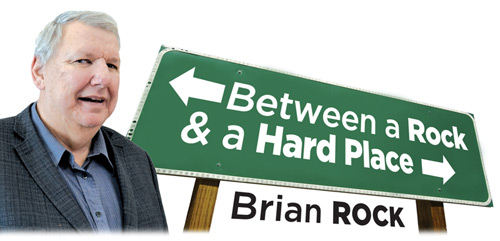La C.A.Q.: what are its origins?

La Coalition Avenir Québec should probably declare former Premier Maurice Le Noblet Duplessis as its patron saint. In 1935, Duplessis was instrumental as the Leader of the Conservative Party of Québec in forming an electoral coalition with the dissident l’Action libérale nationale. As the Party Leader of the new Union Nationale, he won a majority of seats in the provincial general election of 1936. He became the dominant political figure in the province, winning strong majorities in the general elections of 1944, 1948, 1952, and 1956. Following Duplessis’s death in September of 1959, the Union Nationale declined in popularity with the arrival of la revolution tranquille. The Union Nationale elected only eleven members in the general election of 1976 and was eventually dissolved as a political party in 1989.
L’Action démocratique du Québec (ADQ) was formed as a political party in 1994 by Jean Allaire, an attorney well known for his Allaire Report on constitutional matters, and Mario Dumont, former president of the Liberal Youth Commission. Allaire and Dumont led a group of dissident allairistes Liberals out of the Quebec Liberal Party in the constitutional dispute over the Charlottetown Accord. Mario Dumont became outright leader when Allaire’s health issues forced him to resign as leader. Dumont was elected the Member of the National Assembly for Rivière-du-Loup, the only ADQ candidate elected in the general elections of 1994 and 1998. Dumont and three other ADQ candidates were elected in the general election of 2003. In the general election of 2007, Mario Dumont became Leader of the Official Opposition as the ADQ captured 41 seats compared to 48 for the Liberals and only 36 for the PQ. In the general election of 2008, the ADQ suffered great losses and only re-elected seven members. Mario Dumont resigned as party leader
shortly after.
In February of 2011, François Legault and Charles Sirois announced the creation of a political movement called la Coalition pour l’avenir du Québec. Legault had been the co-founder and Chief Executive Officer of Air Transat (1986-1997). He then was elected the MNA for Rousseau, representing le Parti québécois, and remained a front bencher for more than a decade, resigning his seat in 2009. Legault served as Minister of Industry, Trade, Science and Technology in 1998, Minister of State for Youth from 1998 to 2001, Minister of Education from 1998 until 2002, Minister responsible for Employment from 2001 until 2002, and Minister of Health and Social Services from 2002 until 2003. Charles Sirois is the founder, controlling shareholder, chairman, and Chief Executive Officer of Telesystem Ltd. and reported to be among the hundred richest businessmen in Canada.
On November 14, 2011, Legault launched the movement as a political party under the slightly modified name of Coalition Avenir Québec. On December 13, 2011, the coalition and the ADQ announced an agreement in principle to merge. On September 4, 2012, the CAQ won nineteen seats in the general election. In the 2014 general election, the CAQ won twenty-two seats, a gain of three seats.
Recent polls have consistently shown the CAQ with a significant lead over the Liberals, within majority government numbers. Majority support among francophones has given the CAQ this lead in the polls. Liberals still lead among anglophones and allophones. The candidates so far nominated for the CAQ may be known locally, but few are recognized by the average voter province-wide. The Liberal strongholds of Western Quebec, the western part of the Island of Montreal, and the Eastern Townships are so far unassailable. CAQ is strong in the areas where the Conservative Party of Canada hold their seats federally, and in the small towns and rural areas of the regions. The PQ is struggling with Québec soldaire nipping at their heels.
In the next four months leading up to the Quebec general election on Monday, October 1, 2018, François Legault must showcase the CAQ candidates that he would name to the cabinet of his government-in-waiting. It is rare to go from third place in the National Assembly to capture power and François Legault still has a lot of work ahead of him to accomplish that feat!

